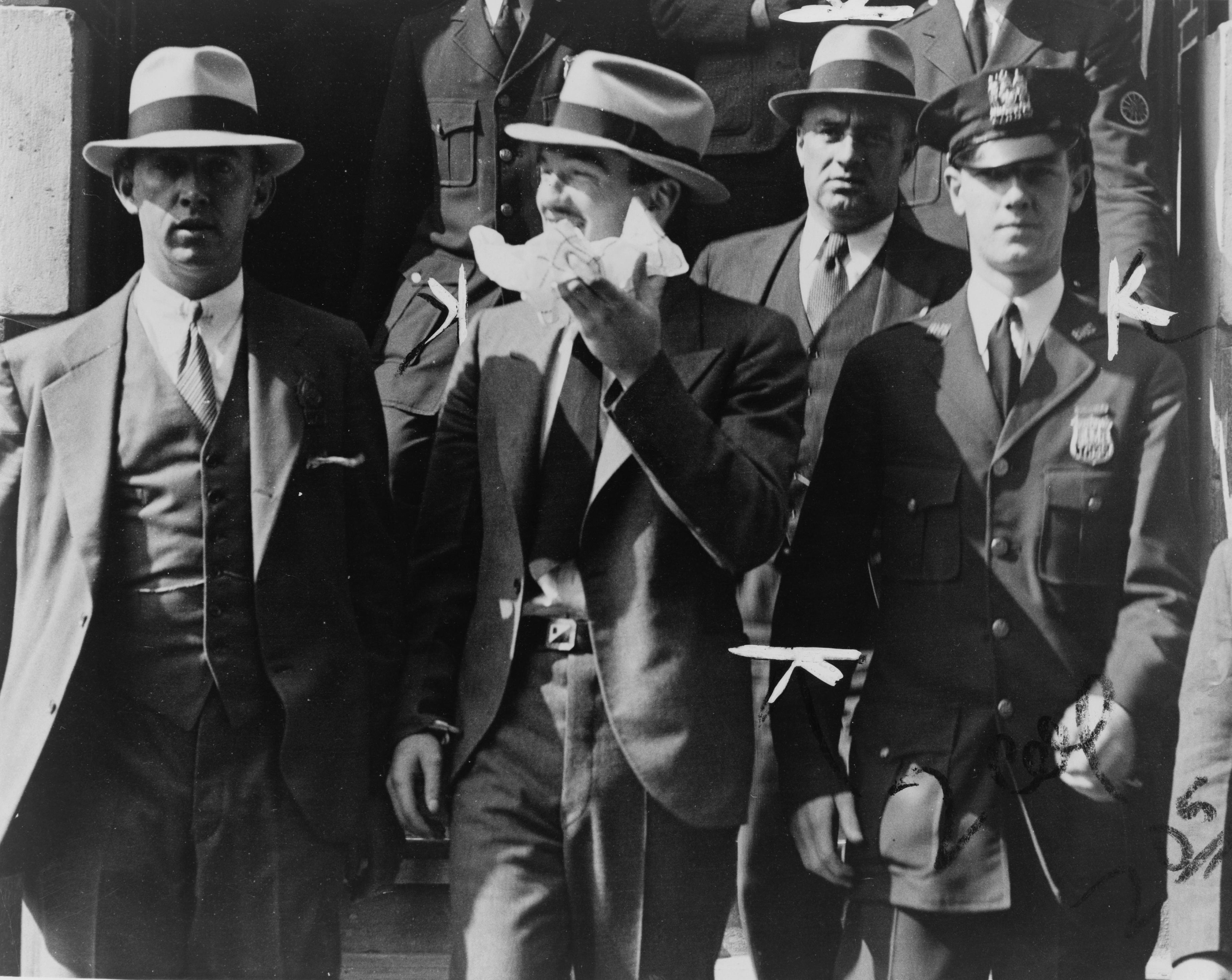|
Capital Murder
Capital murder was a statutory offence of aggravated murder in Great Britain, and Northern Ireland, and the Republic of Ireland, which was later adopted as a legal provision to define certain forms of aggravated murder in the United States. In some parts of the US, this term still defines the category of murder for which the perpetrator is eligible for the death penalty. Some jurisdictions that provide for death as a possible punishment for murder, such as California, do not have a specific statute creating or defining a crime known as capital murder; instead, death is one of the possible sentences for certain kinds of murder. In these cases, "capital murder" is not a phrase used in the legal system but may still be used by others such as the media. Great Britain In Great Britain, this offence was created by section 5 of the Homicide Act 1957. Previously all murders carried the death penalty on conviction, but the 1957 Act limited the death penalty to the following cases: * Murd ... [...More Info...] [...Related Items...] OR: [Wikipedia] [Google] [Baidu] |
Statutory
A statute is a formal written enactment of a legislative authority that governs the legal entities of a city, state, or country by way of consent. Typically, statutes command or prohibit something, or declare policy. Statutes are rules made by legislative bodies; they are distinguished from case law or precedent, which is decided by courts, and regulations issued by government agencies. Publication and organization In virtually all countries, newly enacted statutes are published and distributed so that everyone can look up the statutory law. This can be done in the form of a government gazette which may include other kinds of legal notices released by the government, or in the form of a series of books whose content is limited to legislative acts. In either form, statutes are traditionally published in chronological order based on date of enactment. A universal problem encountered by lawmakers throughout human history is how to organize published statutes. Such publicatio ... [...More Info...] [...Related Items...] OR: [Wikipedia] [Google] [Baidu] |
Criminal Law Act (Northern Ireland) 1967
The Criminal Law Act (Northern Ireland) 1967 (c 18) (NI) is an Act of the Parliament of Northern Ireland. It makes similar provision to the Criminal Law Act 1967 for Northern Ireland. Section 2 This section was repealed barticle 90(2)of, and Part I oSchedule 7to the Police and Criminal Evidence (Northern Ireland) Order 1989 (SI 1989/1341) (NI 12). Section 8 This section was repealed bsection 122(2)of, and Part II oSchedule 7to the Judicature (Northern Ireland) Act 1978. Section 10 This section was repealed by the Magistrates' Courts (Northern Ireland) Order 1981 (SI 1981/1675) (NI 26). Section 12 In section 12(1), the words "and to subsection (2)" were repealed by section 122(2) of, and Part II of Schedule 7 to the Judicature (Northern Ireland) Act 1978. Section 12(2) was repealed by section 122(2) of, and Part II of Schedule 7 to the Judicature (Northern Ireland) Act 1978. See also *Criminal Law Act Criminal Law Act (with its many variations) is a stock short title ... [...More Info...] [...Related Items...] OR: [Wikipedia] [Google] [Baidu] |
Murder In The United States
In the United States, the law for murder varies by jurisdiction. In many US jurisdictions there is a hierarchy of acts, known collectively as homicide, of which first-degree murder and felony murder are the most serious, followed by second-degree murder and, in a few states, third-degree murder, followed by voluntary manslaughter and involuntary manslaughter which are not as serious, followed by reckless homicide and negligent homicide which are the least serious, and ending finally in justifiable homicide, which is not a crime. However, because there are at least 52 relevant jurisdictions, each with its own criminal code, this is a considerable simplification. Sentencing also varies widely depending upon the specific murder charge. "Life imprisonment" is a common penalty for first-degree murder, but its meaning varies widely. Capital punishment is a legal sentence in 27 states, and in the federal civilian and military legal systems, though 8 of these states and the federal ... [...More Info...] [...Related Items...] OR: [Wikipedia] [Google] [Baidu] |
Murder In The United Kingdom
Murder is the unlawful killing of another human without justification or valid excuse, especially the unlawful killing of another human with malice aforethought. ("The killing of another person without justification or excuse, especially the crime of killing a person with malice aforethought or with recklessness manifesting extreme indifference to the value of human life.") This state of mind may, depending upon the jurisdiction, distinguish murder from other forms of unlawful homicide, such as manslaughter. Manslaughter is killing committed in the absence of ''malice'',This is "malice" in a technical legal sense, not the more usual English sense denoting an emotional state. See malice (law). brought about by reasonable provocation, or diminished capacity. ''Involuntary'' manslaughter, where it is recognized, is a killing that lacks all but the most attenuated guilty intent, recklessness. Most societies consider murder to be an extremely serious crime, and thus that a pers ... [...More Info...] [...Related Items...] OR: [Wikipedia] [Google] [Baidu] |
Crimes
In ordinary language, a crime is an unlawful act punishable by a state or other authority. The term ''crime'' does not, in modern criminal law, have any simple and universally accepted definition,Farmer, Lindsay: "Crime, definitions of", in Cane and Conoghan (editors), '' The New Oxford Companion to Law'', Oxford University Press, 2008 (), p. 263Google Books). though statutory definitions have been provided for certain purposes. The most popular view is that crime is a category created by law; in other words, something is a crime if declared as such by the relevant and applicable law. One proposed definition is that a crime or offence (or criminal offence) is an act harmful not only to some individual but also to a community, society, or the state ("a public wrong"). Such acts are forbidden and punishable by law. The notion that acts such as murder, rape, and theft are to be prohibited exists worldwide. What precisely is a criminal offence is defined by the criminal law of ... [...More Info...] [...Related Items...] OR: [Wikipedia] [Google] [Baidu] |
Contract Killing
Contract killing is a form of murder or assassination in which one party hires another party to kill a targeted person or persons. It involves an illegal agreement which includes some form of payment, monetary or otherwise. Either party may be a person, group, or organization. Contract killing has been associated with organized crime, government conspiracies, dictatorships, and vendettas. For example, in the United States, the Jewish-American organized crime gang Murder, Inc. committed hundreds of murders on behalf of the National Crime Syndicate during the 1930s and '40s. Contract killing provides the hiring party with the advantage of not having to carry out the actual killing, making it more difficult for law enforcement to connect the hirer with the murder. The likelihood that authorities will establish that party's guilt for the committed crime, especially due to lack of forensic evidence linked to the contracting party, makes the case more difficult to attribute to ... [...More Info...] [...Related Items...] OR: [Wikipedia] [Google] [Baidu] |
Felony Murder
The rule of felony murder is a legal doctrine in some common law jurisdictions that broadens the crime of murder: when someone is killed (regardless of intent to kill) in the commission of a dangerous or enumerated crime (called a felony in some jurisdictions), the offender, and also the offender's accomplices or co-conspirators, may be found guilty of murder. The concept of felony murder originates in the rule of transferred intent, which is older than the limit of legal memory. In its original form, the malicious intent inherent in the commission of any crime, however trivial, was considered to apply to any consequences of that crime regardless of intent. History While there is debate about the original scope of the rule, modern interpretations typically require that the offence be an inherently dangerous one, or one committed in an obviously dangerous manner. For this reason, the felony murder rule is often justified by its supporters as a means of deterring dangerous fel ... [...More Info...] [...Related Items...] OR: [Wikipedia] [Google] [Baidu] |
First-degree Murder
Murder is the unlawful killing of another human without justification or valid excuse, especially the unlawful killing of another human with malice aforethought. ("The killing of another person without justification or excuse, especially the crime of killing a person with malice aforethought or with recklessness manifesting extreme indifference to the value of human life.") This state of mind may, depending upon the jurisdiction, distinguish murder from other forms of unlawful homicide, such as manslaughter. Manslaughter is killing committed in the absence of ''malice'',This is "malice" in a technical legal sense, not the more usual English sense denoting an emotional state. See malice (law). brought about by reasonable provocation, or diminished capacity. ''Involuntary'' manslaughter, where it is recognized, is a killing that lacks all but the most attenuated guilty intent, recklessness. Most societies consider murder to be an extremely serious crime, and thus that a pe ... [...More Info...] [...Related Items...] OR: [Wikipedia] [Google] [Baidu] |
Capital Punishment By The United States Federal Government
Capital punishment is a legal penalty under the criminal justice system of the United States federal government. It can be imposed for treason, espionage, murder, large-scale drug trafficking, or attempted murder of a witness, juror, or court officer in certain cases. The federal government imposes and carries out a small minority of the death sentences in the U.S., with the vast majority being applied by state governments. The Federal Bureau of Prisons (BOP) manages the housing and execution of federal death row prisoners. In practice, the federal government rarely carries out executions. As a result of the Supreme Court opinion in '' Furman v. Georgia'' in 1972, the federal death penalty was suspended from law until its reinstatement by Congress in 1988. No federal executions occurred between 1972 and 2001. From 2001 to 2003, three people were executed by the federal government. No further federal executions occurred from March 18, 2003, up to July 14, 2020, when they res ... [...More Info...] [...Related Items...] OR: [Wikipedia] [Google] [Baidu] |
Criminal Justice Act 1990
Capital punishment in the Republic of Ireland was abolished in statute law in 1990, having been abolished in 1964 for most offences including ordinary murder. The last person to be executed by the British state in Ireland was Robert McGladdery, who was hanged on 20 December 1961 in Crumlin Road Gaol in Belfast, Northern Ireland. The last person to be executed by the state in the Republic of Ireland was Michael Manning (murderer), Michael Manning, hanged for murder on 20 April 1954. All subsequent death sentences in the Republic of Ireland, the last handed down in 1985, were commuted by the President of Ireland, President, on the advice of the Government of Ireland, Government, to terms of imprisonment of up to 40 years. The Twenty-first Amendment of the Constitution of Ireland, Twenty-first Amendment of the constitution, passed by referendum in 2001, prohibits the reintroduction of the death penalty, even during a state of emergency or war. Capital punishment is also forbidden by ... [...More Info...] [...Related Items...] OR: [Wikipedia] [Google] [Baidu] |
Criminal Justice Act 1964
In ordinary language, a crime is an unlawful act punishable by a state or other authority. The term ''crime'' does not, in modern criminal law, have any simple and universally accepted definition,Farmer, Lindsay: "Crime, definitions of", in Cane and Conoghan (editors), ''The New Oxford Companion to Law'', Oxford University Press, 2008 (), p. 263Google Books). though statutory definitions have been provided for certain purposes. The most popular view is that crime is a category created by law; in other words, something is a crime if declared as such by the relevant and applicable law. One proposed definition is that a crime or offence (or criminal offence) is an act harmful not only to some individual but also to a community, society, or the state ("a public wrong"). Such acts are forbidden and punishable by law. The notion that acts such as murder, rape, and theft are to be prohibited exists worldwide. What precisely is a criminal offence is defined by the criminal law of each r ... [...More Info...] [...Related Items...] OR: [Wikipedia] [Google] [Baidu] |
Northern Ireland (Emergency Provisions) Act 1973
The Northern Ireland (Emergency Provisions) Act 1973 is an Act of the Parliament of the United Kingdom which abolished the death penalty for murder in Northern Ireland, and established the Diplock courts in which terrorist offences were tried by a judge without a jury. It has mostly been repealed, the anti-terrorism provisions having been superseded by subsequent legislation. The death penalty had not been used in Northern Ireland since 1961, when Robert McGladdery was hanged. The Act banned membership under penalty of law in the following organisations: * Irish Republican Army * Cumann na mBan * Fianna Éireann * Saor Éire * Sinn Féin Sinn Féin ( , ; en, " eOurselves") is an Irish republican and democratic socialist political party active throughout both the Republic of Ireland and Northern Ireland. The original Sinn Féin organisation was founded in 1905 by Arthur G ... * Ulster Volunteer Force The subsequent Elected Authorities (Northern Ireland) Act 198 ... [...More Info...] [...Related Items...] OR: [Wikipedia] [Google] [Baidu] |






